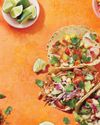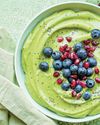
You've heard about intermittent fasting for weight loss, blood sugar control and other significant health benefits. And it's not just the latest in a long line of fad diets: Research shows periodic fasting not only encourages weight loss (especially reductions in belly fat), but, done the right way, it also protects against disease, improves overall health and enhances longevity. Done poorly, intermittent fasting can leave you dehydrated, fatigued and lacking in vital nutrients. Here's what you need to know, and how to do it safely.
At its most basic, intermittent fasting is an eating routine that restricts or eliminates daily food consumption to a window of time, in a very specific pattern. It's nothing new; fasting has been used by various cultures throughout history for therapeutic and spiritual purposes. And in primitive times, humans didn't have 24/7 access to food and were forced to fast, sometimes for days. As a result, our bodies evolved to survive - and thrive without eating for extended periods of time. So in spite of our obsession with food, we humans can function well, and benefit greatly, from periodic fasting.
Because it naturally restricts calories (unless you binge during your eating periods), intermittent fasting encourages weight loss. Abstaining from food also prompts physiological changes that boost metabolism, making stored body fat more accessible and promoting weight loss – especially in the abdominal area – while retaining lean muscle. Studies show periodic fasting can lead to often-significant decreases in weight and body fat, with less muscle loss than standard calorie restricted diets, and, in some studies, as much as a 7% reduction in waist circumference (belly fat).
Esta historia es de la edición Winter 2021/2022 de Clean Eating.
Comience su prueba gratuita de Magzter GOLD de 7 días para acceder a miles de historias premium seleccionadas y a más de 9,000 revistas y periódicos.
Ya eres suscriptor ? Conectar
Esta historia es de la edición Winter 2021/2022 de Clean Eating.
Comience su prueba gratuita de Magzter GOLD de 7 días para acceder a miles de historias premium seleccionadas y a más de 9,000 revistas y periódicos.
Ya eres suscriptor? Conectar

Summer Lovin'
Bushels of berries, peaches, nectarines, cherries, plums and more beckon at the market. Buy them all and soak up the sun in these bejeweled desserts.

Into the Wild
Cooking along the 500-mile Colorado Trail taught Clean Eating editor Amanda M. Faison how to transform the campfire into a kitchen.
![[ Three Ways ] Tropical Punch [ Three Ways ] Tropical Punch](https://reseuro.magzter.com/100x125/articles/6144/994436/qSC8RoLOC1657772079105/crp_Hibiscus-Jamaican-sorrel-Recipes.jpg)
[ Three Ways ] Tropical Punch
Of African origin, hibiscus or Jamaican sorrel, is an important staple in West Indian and Mexican cooking. Hibiscus is sour enough to make you pucker and tropical enough to evoke the islands. Popularly brewed as a tea, the dried petals play well in savory or sweet recipes, too.

You Had Meat Tacos
"When it's done properly, taco should be a verb," declared Jonathan Gold, the late restaurant critic of the Los Angeles Times. Tacos are much more than a meal; they're an action.

The Multitasker
Collagen usually makes headlines for its skin-saving benefits. But did you know that it's also an essential nutrient for joint health? (Especially if you sit at a desk all day.)

The Minimalist
Summer cooking is all about fresh and fast and avoiding the stove.

Lighten Up
If you've had an air fryer in your online cart since the start of the pandemic, it's time to commit. Let's just say it'll change your life.

JUST RIGHT
The classic low-country boil is a celebration of place, tradition and ratio.

Recovery Days
The mantra that food is fuel is gold, but food as refuel is equally valuable.

Lower your impact without sacrificing satisfaction.
Eat like a Reducetarian.